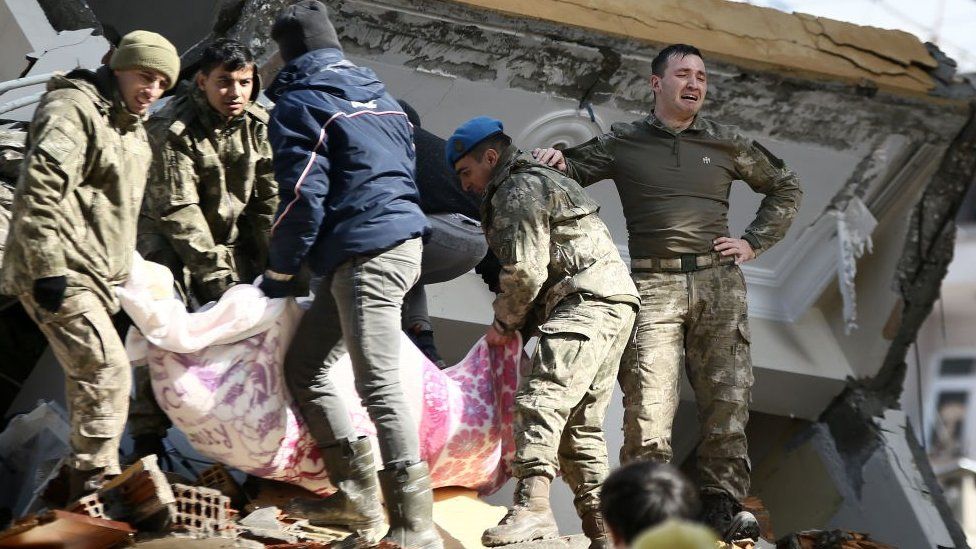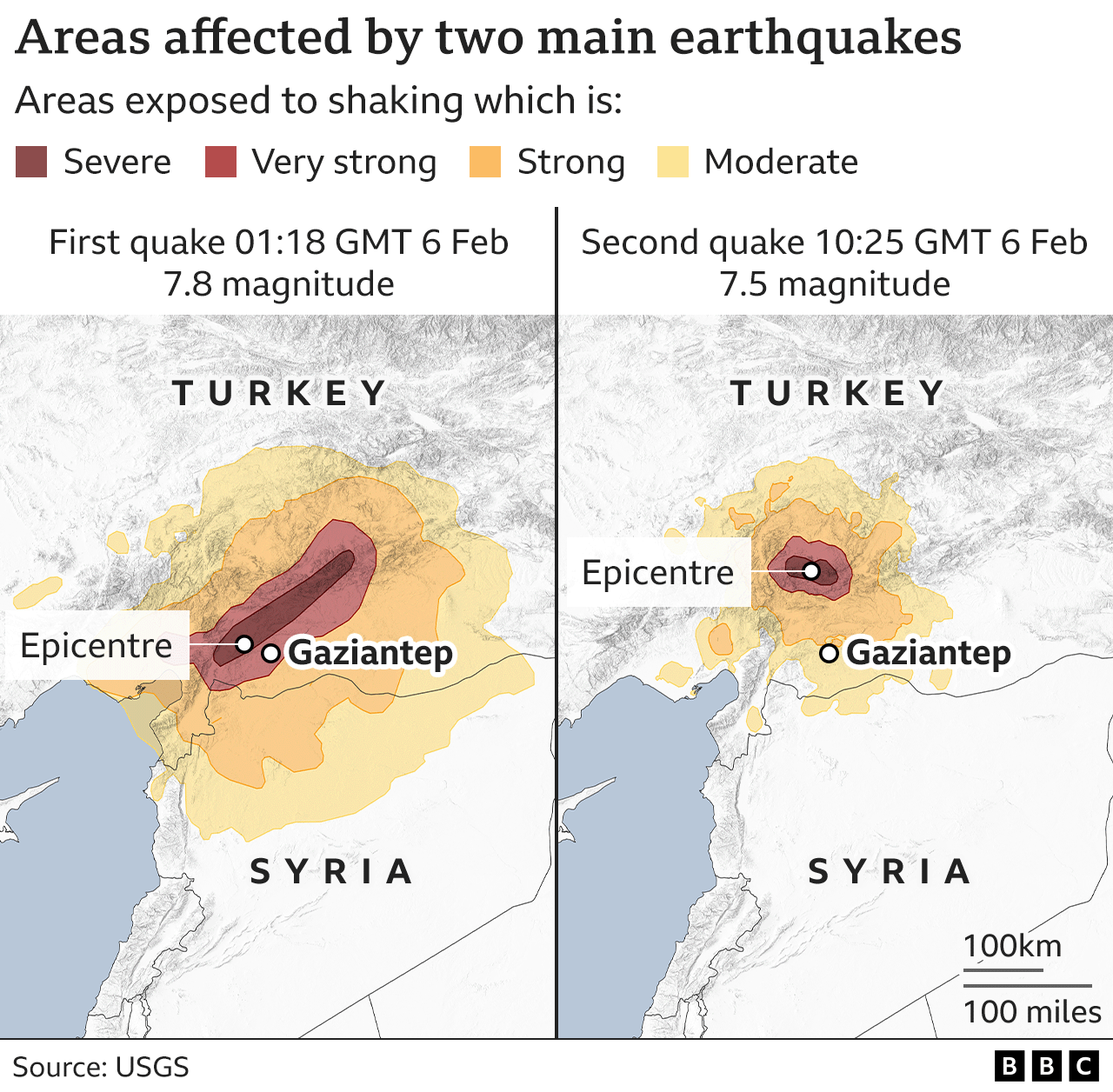Turkey earthquake: Erdogan announces three-month state of emergency in quake area
Turkish President Recep Tayyip Erdogan has announced a three-month state of emergency in 10 provinces worst-affected by an earthquake that has killed thousands.
Mr Erdogan said that the death toll in Turkey has risen to 3,549 people.
More than 1,600 people are reported to have died in Syria.
In a televised address, Mr Erdogan said the state of emergency is to ensure that rescue work can be "carried out quickly" in the country's south-east.
He said the measures would allow relief workers and financial aid into the affected regions, but did not give further details.
The state of emergency will end just before elections on 14 May, when Mr Erdogan will attempt to stay in power after 20 years.
Turkey last imposed a state of emergency in 2016 after a failed coup attempt. It was lifted two years later.
Rescuers in Turkey are battling heavy rain and snow as they race against the clock to find survivors of the earthquake that struck in the early hours of Monday.
The World Health Organization has warned the toll may rise dramatically as rescuers find more victims.
Heavy machinery worked through the night in the city of Adana, with lights illuminating the collapsed buildings and huge slabs of concrete, in scenes repeated across southern Turkey.
Occasionally the work stopped and a call of "Allahu Akbar" rose up when a survivor was found, or when the dead were recovered.
Adana is full of the homeless - those who lost their homes and others too fearful of aftershocks to return.
Some left without shoes, coats and phone chargers. Temperatures are expected to drop below freezing later this week.
The 7.8 magnitude tremor struck at 04:17 (01:17 GMT) on Monday at a depth of 17.9km (11 miles) near the city of Gaziantep, according to the US Geological Survey.
A later tremor had a magnitude of 7.5 and its epicentre was in the Elbistan district of Kahramanmaras province.
On Tuesday morning, traffic was at a standstill on the main highway to the Turkish city of Maras, close to the epicentre of the quake.
Cars occasionally crawled forward, the wet road illuminated by glowing red brake lights. Few rescuers have made it to this part of southern Turkey yet.
One search and rescue team on their way to the city, their van loaded with specialist equipment and supplies, told the BBC they were eager to start looking for survivors, but they had no idea how bad the devastation would be when they arrived.
Nationally, 8,000 people have been rescued from more than 4,700 destroyed buildings, Turkey's Disaster and Emergency Management Authority (AFAD) said in its latest statement.
As aftershocks continue, rescuers in some areas have been digging through rubble with their bare hands. But freezing conditions are hampering search efforts.
In the southern province of Hatay, the Reuters news agency reported that a woman's voice was heard calling for help under a pile of rubble.
"They're making noises, but nobody is coming," a resident who gave his name as Deniz said while weeping.
"We're devastated, we're devastated. My God... They're calling out. They're saying, 'Save us,' but we can't save them. How are we going to save them? There has been nobody since the morning."
In Hatay, Ghanaian footballer Christian who made 107 appearances for Newcastle - was pulled from the rubble of a building with injuries, his manager Mustafa Özat told Turkish radio.
Atsu now plays for Turkish club Hatayspor. The club's sporting director, Taner Savut, is still under the rubble, Mr Özat said.
In the Turkish city of Osmaniye, near the epicentre, pouring rain hampered rescuers. The city was without power as the cold and rain set in.
One family camped on the street, scared of the aftershocks, despite the freezing temperatures. Every time they felt an aftershock, the family moved closer into the middle of the street.
A hotel owner in the city told the BBC that of 14 guests staying that night, only seven had been found.
Countries around the world are sending support to help the rescue efforts, including specialist teams, sniffer dogs and equipment.
But the earthquake has caused significant damage to three airports across Turkey, also creating challenges for aid deliveries.
At least 1,600 people are now known to have been killed in Syria, where millions of refugees live in camps on the Turkish border.
Turkey lies in one of the world's most active earthquake zones.
In 1999 a quake killed more than 17,000 in the north-west, while in 1939, 33,000 people died in the eastern province of Erzincan.
This earthquake was powerful enough to be felt as far away as Cyprus, Lebanon and Israel.
(Additional reporting by Antoinette Radford and George Wright in London)



0 Comments:
Post a Comment